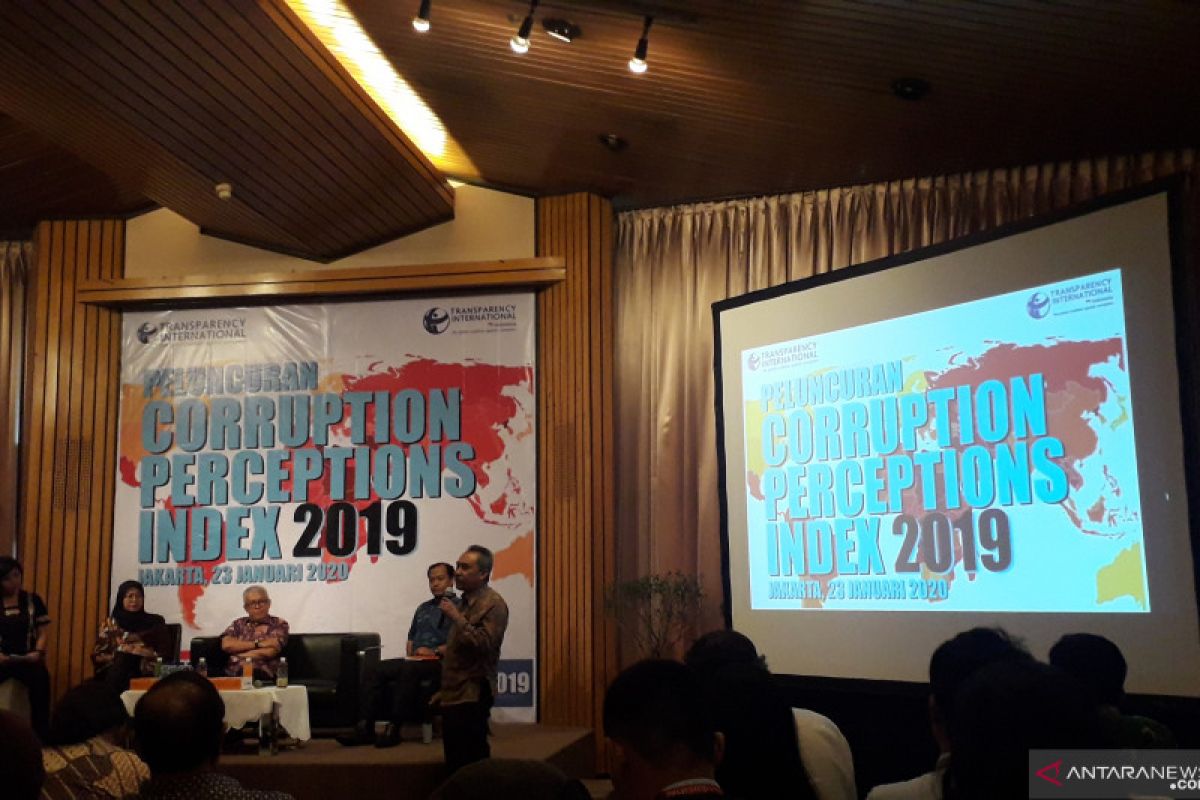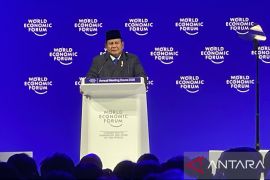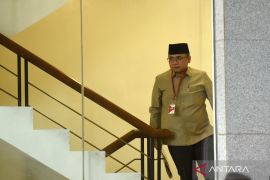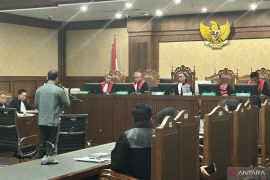Indonesia's CPI score in 2020 stood at 37 and ranked 102nd of the 180 countries.Jakarta (ANTARA) - Indonesia's Corruption Perception Index (CPI) score in 2020 decreased by three points to reach 37, from 40 in 2019, and it was ranked 102nd out of the 180 nations.
"Indonesia's CPI score in 2020 stood at 37 and ranked 102nd of the 180 countries. The score has declined by three points, from 40 in 2019," Transparency International Indonesia (TII) researcher Wawan Suyatmiko stated during a virtual launch of Indonesia's CPI here on Thursday.
Suyatmiko pointed to Indonesia having recorded the highest CPI score since the past 25 years in 2019 and had ranked 85th of the 180 countries.
Indonesia's CPI score was based on 13 data resources and experts review to measure corruption in the public sector in 180 countries and territories.
The CPI currently ranks 180 countries on a scale from 100 (very clean) to 0 (highly corrupt).
"The country having the same score and rank as Indonesia is Gambia," Suyatmiko remarked.
The TII researcher remarked that since 1995, Indonesia had continued to record an improvement until 2019.
In 2020, five data resources has declined as compared to those of 2019: Political Risk Service that decreased, from 58 to 50; IMD World Competitiveness Yearbook, from 48 to 43; Global Insight Country Risk Ratings, from 47 to 35; Political and Economic Risk Consultancy (PERC) Asia Risk Guide, from 32 to 35; and Varieties of Democracy, from 28 to 26.
Three indicators were stagnant: World Justice Project – Rule of Law Index at 46; Bertelsmann Foundation Transformation Index at 37; and Economist Intelligence Unit Country Ratings at 37.
One indicator that is the World Justice Project – Rule of Law Index increased, from 21 in 2019 to 23 in 2020.
"This means that indicators related to economy, investment, and ease of doing business were stagnant for the WEF and declined for the PRS, IMD, GI, and PERC in 2020," Suyatmiko remarked.
The World Justice Project – Rule of Law Index, as indicators in law enforcement, showed improvement in bureaucracy services, while a decline occurred in the indicator pertaining to political corruption and democracy.
"The country received a declining score in the Varieties of Democracy category related to the electoral system. This means that the political sector is still vulnerable to corruption," he stated.
Speaking in connection with the COVID-19 pandemic, Suyatmiko said the TII research indicated that corruption had scrubbed the budget for public services, including in the health sector.
"Countries, with high corruption, tend to spend a lower budget for the health sector. Corruption has also contributed to a setback in democracy during the COVID-19 pandemic since highly corrupt countries would respond to the crisis in less democratic ways," he elaborated.
Singapore has emerged as the least corrupt country in the ASEAN, with a CPI score of 85; followed by Brunei Darussalam; with a score of 60; Malaysia, 51; Timor Leste, 40; Indonesia, 37; Vietnam and Thailand, 36; the Philippines, 34; Laos, 29; Myanmar, 28; and Cambodia, 21.
Denmark and New Zealand are perceived as the least corrupt nations in the world, with a score of 88; followed by Finland, Singapore, Sweden, and Switzerland, with a score of 85; Norway, 84; the Netherlands, 82; and Germany and Luxembourg, with a score of 80.
The world’s most corrupt nations were Somalia and South Sudan, with a score of 12; Syria, 14; and Yemen and Venezuela, with a score of 15.
The TTI has given four recommendations: strengthening the role and function of the supervisory institution, ensuring transparent procurement contract during the pandemic, promoting democracy and public participation in public space, and publishing and ensuring relevant data access. Related news: Anti-graft body prevented Rp592.4 trillion losses to state in 2020
Related news: Public service reform to reduce likelihood of corruption: President
EDITED BY INE
Translator: Desca L Natalia, Sri Haryati
Editor: Suharto
Copyright © ANTARA 2021












